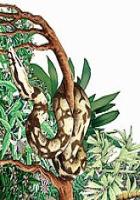HABEAS CORPUS. A writ by which a man may be taken out of jail when confined for the wrong crime.
HABIT, n. A shackle for the free.
HADES, n. The lower world; the residence of departed spirits; the place where the dead live.
Among the ancients the idea of Hades was not synonymous with our Hell, many of the most respectable men of antiquity residing there in a very comfortable kind of way. Indeed, the Elysian Fields themselves were a part of Hades, though they have since been removed to Paris.
When the Jacobean version of the New Testament was in process of evolution the pious and learned men engaged in the work insisted by a majority vote on translating the Greek word "Aides" as "Hell"; but a conscientious minority member secretly possessed himself of the record and struck out the objectional word wherever he could find it. At the next meeting, the Bishop of Salisbury, looking over the work, suddenly sprang to his feet and said with considerable excitement: "Gentlemen, somebody has been razing 'Hell' here!" Years afterward the good prelate's death was made sweet by the reflection that he had been the means (under Providence) of making an important, serviceable and immortal addition to the phraseology of the English tongue.
HAG, n. An elderly lady whom you do not happen to like; sometimes called, also, a hen, or cat. Old witches, sorceresses, etc., were called hags from the belief that their heads were surrounded by a kind of baleful lumination or nimbus -- hag being the popular name of that peculiar electrical light sometimes observed in the hair. At one time hag was not a word of reproach: Drayton speaks of a "beautiful hag, all smiles," much as Shakespeare said, "sweet wench." It would not now be proper to call your sweetheart a hag -- that compliment is reserved for the use of her grandchildren.
HALF, n. One of two equal parts into which a thing may be divided, or considered as divided. In the fourteenth century a heated discussion arose among theologists and philosophers as to whether Omniscience could part an object into three halves; and the pious Father Aldrovinus publicly prayed in the cathedral at Rouen that God would demonstrate the affirmative of the proposition in some signal and unmistakable way, and particularly (if it should please Him) upon the body of that hardy blasphemer, Manutius Procinus, who maintained the negative. Procinus, however, was spared to die of the bite of a viper.
HALO, n. Properly, a luminous ring encircling an astronomical body, but not infrequently confounded with "aureola," or "nimbus," a somewhat similar phenomenon worn as a head-dress by divinities and saints. The halo is a purely optical illusion, produced by moisture in the air, in the manner of a rainbow; but the aureola is conferred as a sign of superior sanctity, in the same way as a bishop's mitre, or the Pope's tiara. In the painting of the Nativity, by Szedgkin, a pious artist of Pesth, not only do the Virgin and the Child wear the nimbus, but an ass nibbling hay from the sacred manger is similarly decorated and, to his lasting honor be it said, appears to bear his unaccustomed dignity with a truly saintly grace.
HAND, n. A singular instrument worn at the end of the human arm and commonly thrust into somebody's pocket.
HANDKERCHIEF, n. A small square of silk or linen, used in various ignoble offices about the face and especially serviceable at funerals to conceal the lack of tears. The handkerchief is of recent invention; our ancestors knew nothing of it and intrusted its duties to the sleeve. Shakespeare's introducing it into the play of "Othello" is an anachronism: Desdemona dried her nose with her skirt, as Dr. Mary Walker and other reformers have done with their coattails in our own day -- an evidence that revolutions sometimes go backward.
HANGMAN, n. An officer of the law charged with duties of the highest dignity and utmost gravity, and held in hereditary disesteem by a populace having a criminal ancestry. In some of the American States his functions are now performed by an electrician, as in New Jersey, where executions by electricity have recently been ordered -- the first instance known to this lexicographer of anybody questioning the expediency of hanging Jerseymen.
HAPPINESS, n. An agreeable sensation arising from contemplating the misery of another.
HARANGUE, n. A speech by an opponent, who is known as an harrangue- outang.
HARBOR, n. A place where ships taking shelter from stores are exposed to the fury of the customs.
HARMONISTS, n. A sect of Protestants, now extinct, who came from Europe in the beginning of the last century and were distinguished for the bitterness of their internal controversies and dissensions.
HASH, x. There is no definition for this word -- nobody knows what hash is.
HATCHET, n. A young axe, known among Indians as a Thomashawk.
"O bury the hatchet, irascible Red, For peace is a blessing," the White Man said.
The Savage concurred, and that weapon interred, With imposing rites, in the White Man's head.
John Lukkus HATRED, n. A sentiment appropriate to the occasion of another's superiority.
HEAD-MONEY, n. A capitation tax, or poll-tax.
In ancient times there lived a king Whose tax-collectors could not wring From all his subjects gold enough To make the royal way less rough.
For pleasure's highway, like the dames Whose premises adjoin it, claims Perpetual repairing. So The tax-collectors in a row Appeared before the throne to pray Their master to devise some way To swell the revenue. "So great,"
Said they, "are the demands of state A tithe of all that we collect Will scarcely meet them. Pray reflect:
How, if one-tenth we must resign, Can we exist on t'other nine?"
The monarch asked them in reply:
"Has it occurred to you to try The advantage of economy?"
"It has," the spokesman said: "we sold All of our gray garrotes of gold;
With plated-ware we now compress The necks of those whom we assess.















